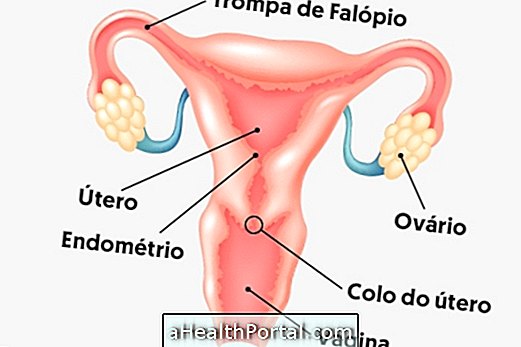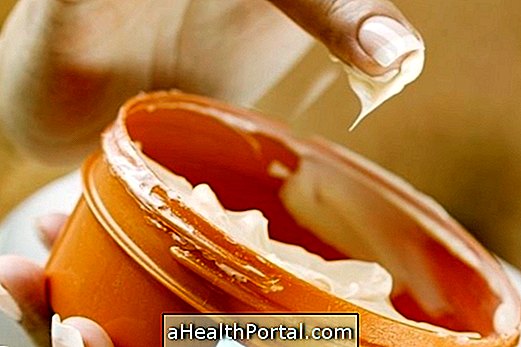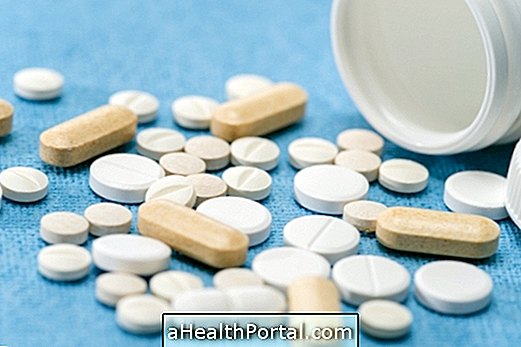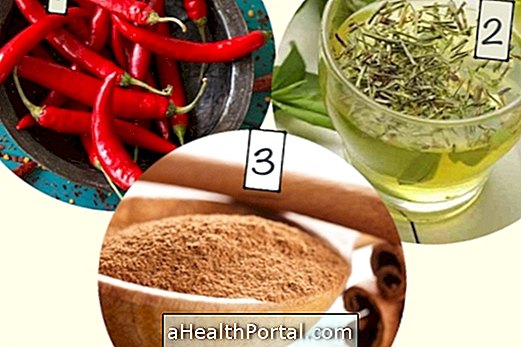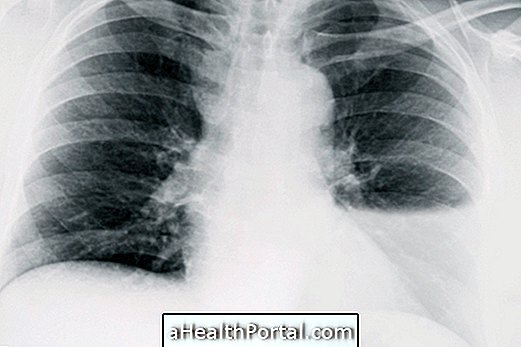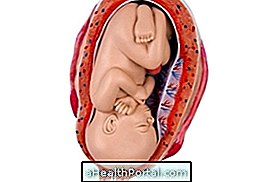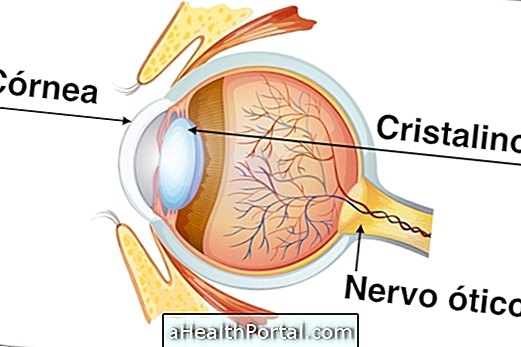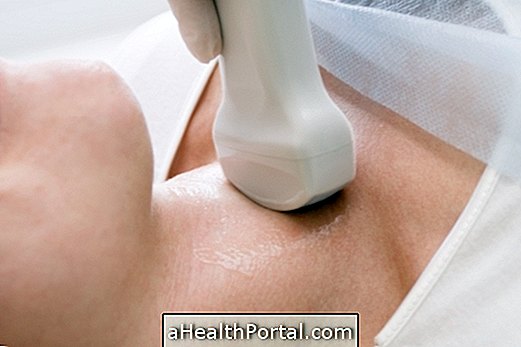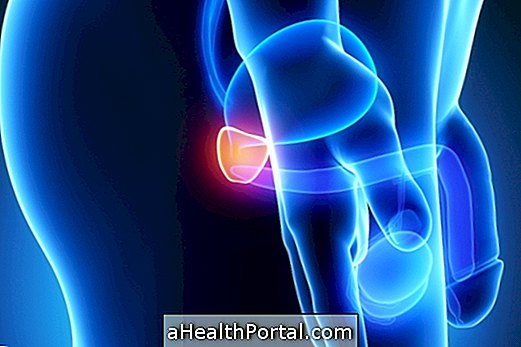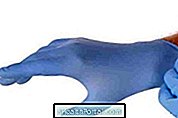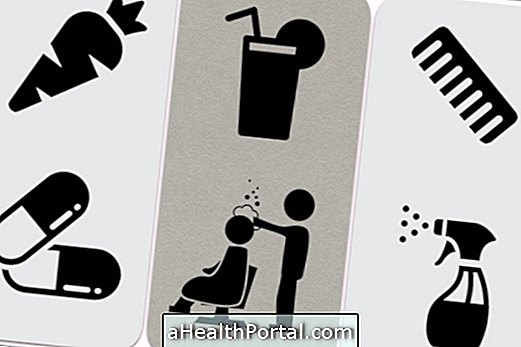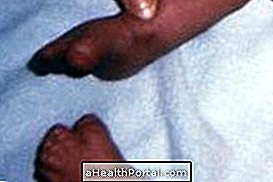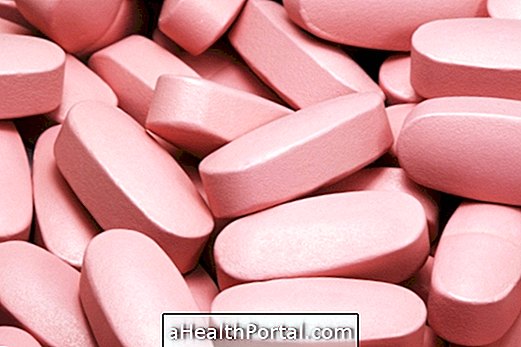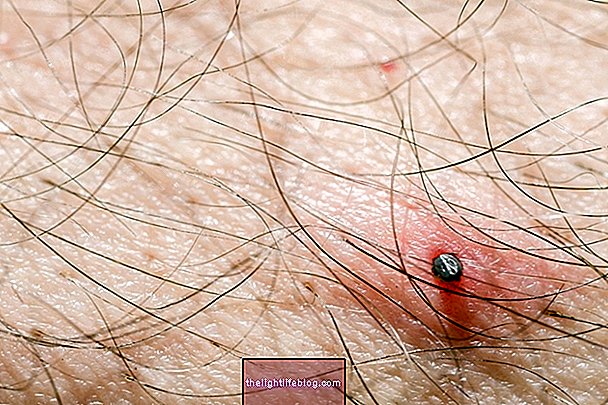What is it?
Uric acid is a substance formed by the body after the digestion of proteins, which form a substance called purine, which then give rise to crystals of uric acid, which accumulate in the joints causing intense pain.
Usually uric acid does not cause any health problem being eliminated by the kidneys, but when there is a kidney problem, when the person infers many proteins or when your body produces too much uric acid, it accumulates in the joints, tendons and kidneys, giving rise to Gouty Arthritis, also popularly known as 'Gout', which is the most painful type of arthritis in existence.
Excess uric acid is cured because its imbalances can be controlled through a balanced diet, rich in water and poor in foods rich in protein. In some cases, when the patient has symptoms, the doctor may indicate the use of medicines.
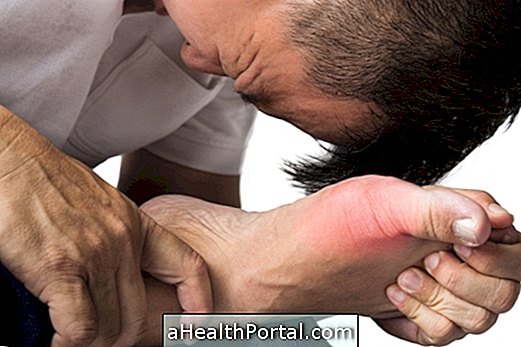
Uric acid test
Analysis of uric acid can be done by examining blood or urine, and the reference values are:
| Blood | Urine | |
| men | 3.4 - 7.0 mg / dL | 0.75 g / day |
| Woman | 2.4 - 6.0 mg / dL | 0.24 g / day |
The uric acid test is usually ordered by the doctor when the patient has joint pain or when there are suspicions of more serious diseases, such as kidney damage or leukemia.
The most common is that the patient's values are above the reference values but there is also low uric acid that is related to congenital diseases, such as Wilson's disease, for example.
Symptoms of high uric acid
The main symptoms of high uric acid, which mainly affects men, are:
- Pain, swelling, redness and
- Difficulty in moving a joint, especially in the fingers, knees, ankles, heels and toes.
- The accumulated crystals can be seen in severely affected joints, causing deformations.
Also it is common the constant appearance of stones in the kidneys, that cause intense pain in the bottom of the back and difficulty to urinate, for example. Check out more details of the symptoms of high uric acid.
What Causes Elevated Uric Acid
Excessive consumption of high-protein foods such as red meats, seafood and fish increases the chances of high uric acid, as well as overconsumption of alcoholic beverages, both by increasing urate production and by reducing its elimination, and yet the consumption of foods high in saturated fat that increases the risk of insulin resistance and obesity, which decrease the elimination of urate by the kidneys.
How To Treat High Uric Acid
Treatment for high uric acid should be guided by a rheumatologist, but usually includes the use of uric acid-lowering medications such as Allopurinol, Probenecid, or Sulfinpyrazone, and the use of anti-inflammatories, such as Indomethacin or Ibuprofen, to alleviate joint pains.
During treatment, it is also very important to eat a diet for uric acid, avoiding the consumption of foods rich in purine, such as red meats, fish and seafood, as well as giving preference to natural foods rather than industrialized ones. Watch the video and know what to eat, and what not to eat, to control uric acid in the blood:


